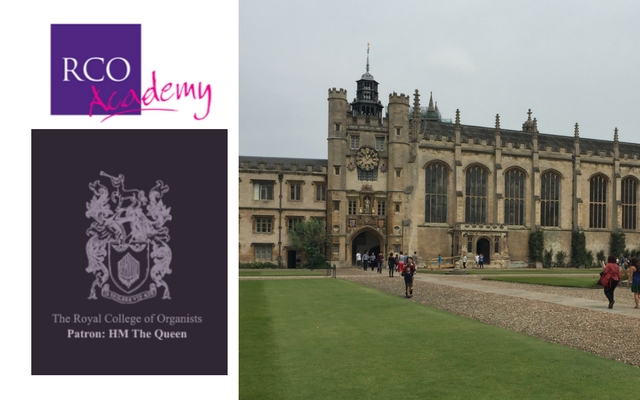On a magnificent summer day in late July the RCO had invited a group of supporters to join them at a lunchtime reception in Trinity College to observe part of the ‘Organ Scholar Experience’ course taking place over 5 days at various colleges and also nearby Ely Cathedral.
We gathered near midday in ‘the old kitchens’ a short walk across the main court (that’s quadrangles to those of us that went to the other place) from the main entrance. Trinity main court (pictured below) is famous as the location of the race against the college clock portrayed in the film Chariots of Fire although this strangely was filmed in Eton College. Many have tried to run the 341 metres around the court in the 43 seconds that it takes to strike 12 o’clock but only two people are believed to have actually completed the run in the time.
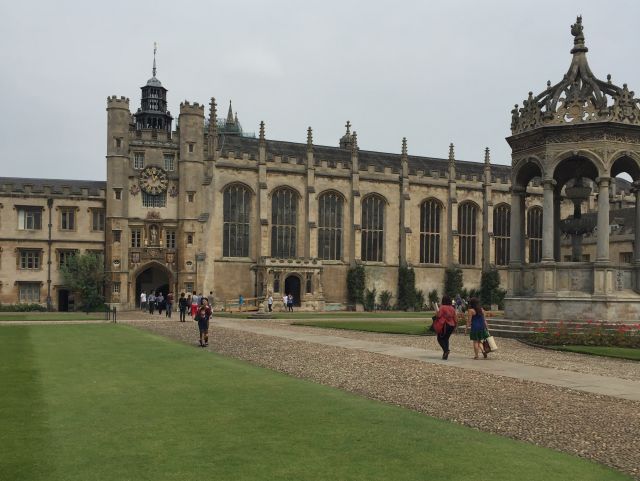
This day was too hot to consider jogging it so I made my way to the old kitchens only to bump into past RCO President and my old organ teacher Catherine Ennis. She was leaving the men’s room as I was entering where upon I received a small lecture to check the signage more carefully. A rare occasion when I could be certain my teacher was wrong and her mistake recognised as Catherine checked the signage on leaving the facilities. One up to the boys!
A convivial group from far and wide met for a light lunch and update on RCO news. This year’s course was attended by over 40 students, a near record number which was encouraging. Many from overseas and some were returning students much closer to university entrance.
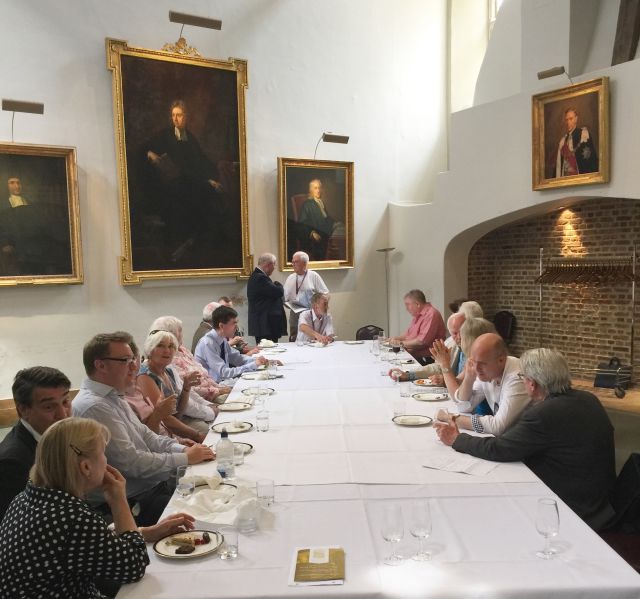
After lunch we moved to the chapel for a recital on the college chapel organ (pictured below, view from the west).
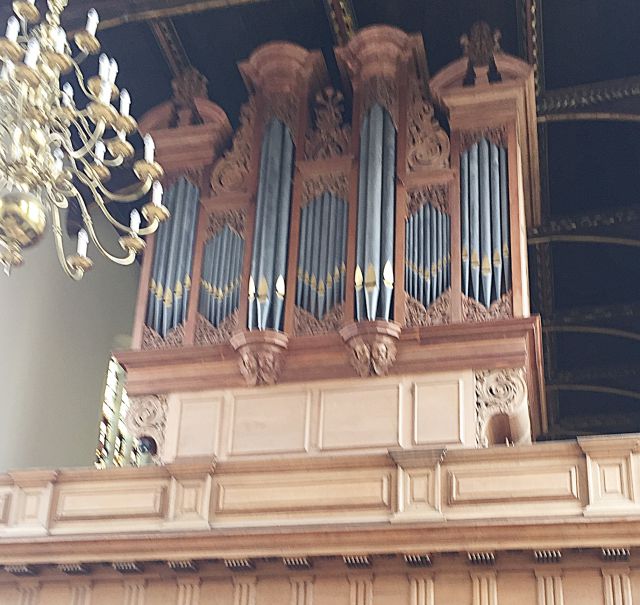
The original instrument was built by the famous ‘Father’ Smith in 1694 and 1706. Over the years many alterations were made, until in 1913 an almost totally new organ was built, on a massive scale.
In 1975 the Swiss firm Metzler Söhne completed the present mechanical-action instrument based on the surviving pipework, and within the original cases, of the 1694 and 1706 ‘Father’ Smith organs. The 42-rank instrument is remarkable for its meticulous craftsmanship and durability.
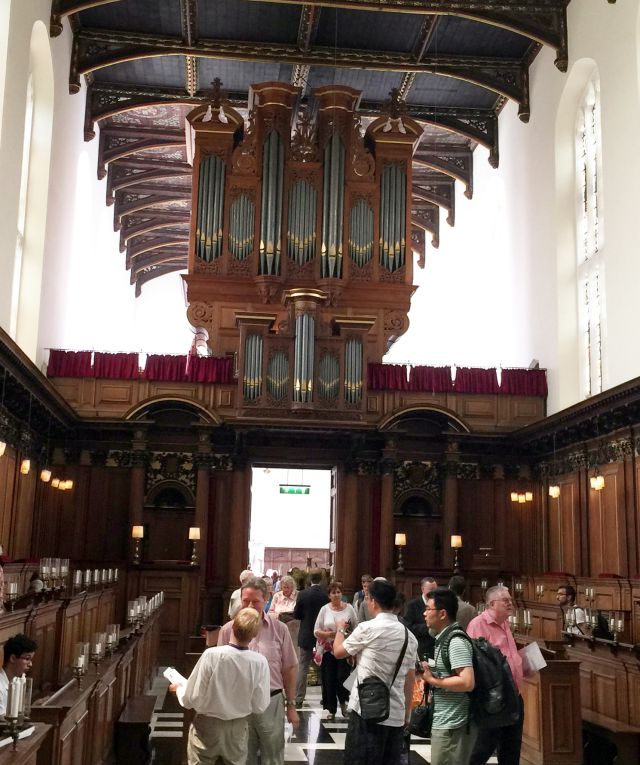
On this very hot day the tuning was far from perfect and a challenge to Tom Bell our recitalist. After attempting use of full organ in the opening Bach which at times sounded as played on several temperaments at once, a far more restrained use of stops had to be employed for all the remaining pieces.
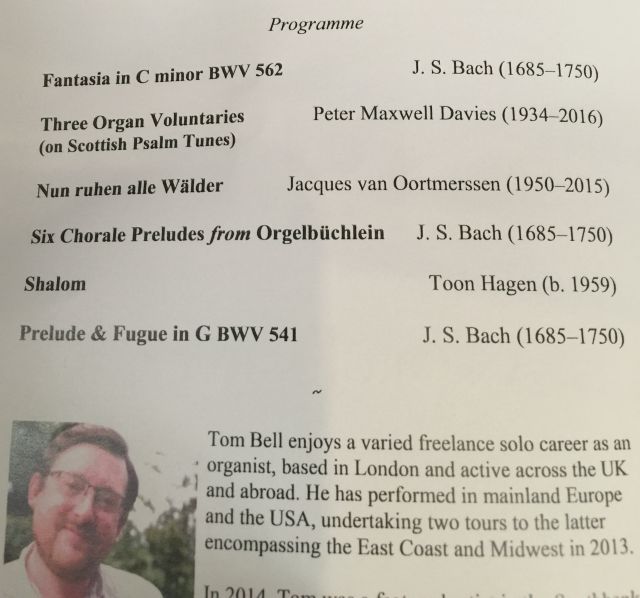
It is a great credit to Tom that in near 30 degrees in the loft he stayed the course. Organists are clearly made of sterling stuff!
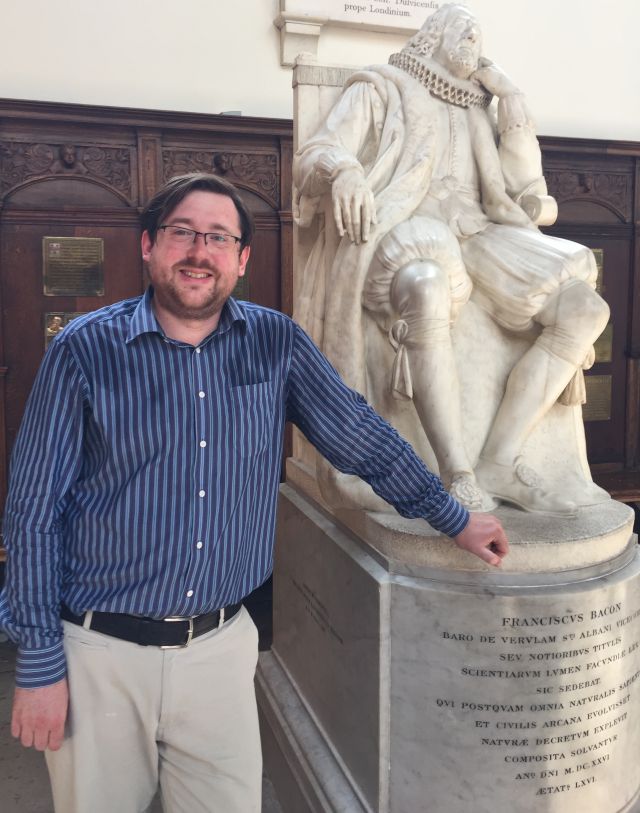
Afterwards I moved next door to St John’s – to observe an improvisation master class. I have played St Johns many years ago so I knew what to expect. I have to confess the sound of a magnificent warm English voiced instrument was a comforting and welcome joy after the rather brasher tones of the continental voicing of the Trinity organ. So a class concentrating on hymn tune improvisation, such a vital skill for any church musician on the rich pallet of St John’s, was a joy.
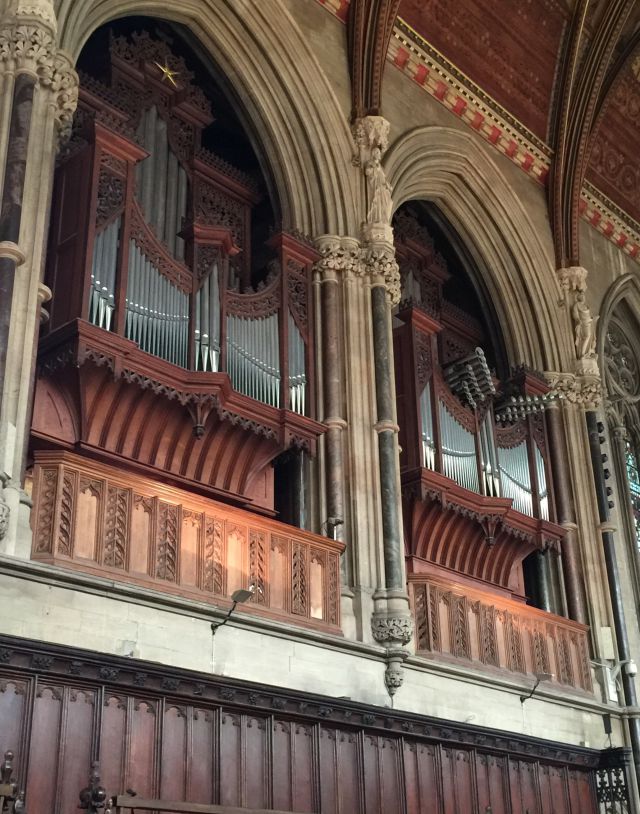
Cambridge on a warm bright summers day is a joy. To be able to enjoy the quiet and tranquil inner spaces of courts and chapels is a very special privilege especially so when one knows they will be filled with organ music. A really lovely day out.
Thank you to RCO for the invitation. Let’s do the same in Oxford next year!?
I have had a passion for church organs since the tender age of 12. I own and run Viscount Organs with a close attention to the detail that musicians appreciate; and a clear understanding of the benefits of digital technology and keeping to the traditional and emotional elements of organ playing.
